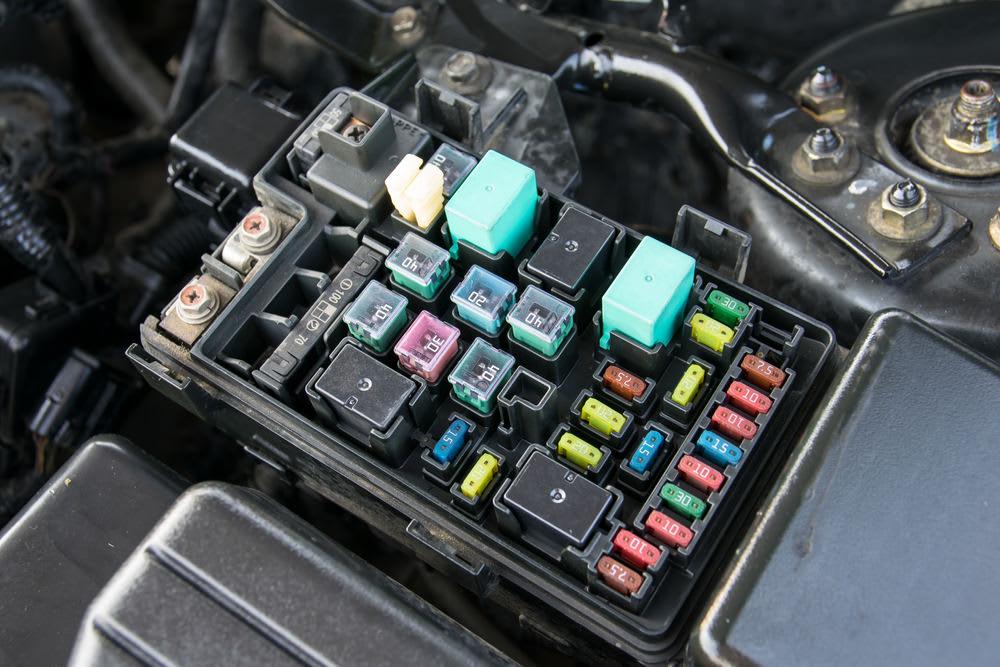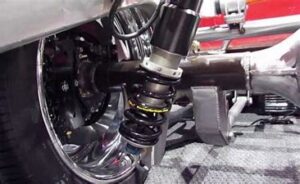Imagine you are prepared to start your automobile and leave for your trip when all of a sudden it refuses to start. Many of us have experienced this frustrating circumstance, and the ignition fuse that keeps blowing is frequently to blame. What is an ignition fuse precisely, and why does it constantly break? An ignition fuse might be thought of as a mini-superhero in your car’s electrical system. Its main responsibility is to safeguard the electrical components of your car. This is against excessive power, it could cause them to malfunction or even catch fire.
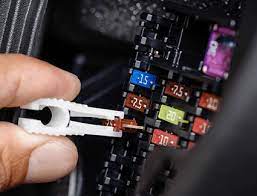
When your ignition fuse keeps blowing, something isn’t quite right with the electrical system of your car. We are here to explain why this occurs, what causes it, and how to resolve it. So fasten your seatbelts because we’re about to debunk the mystery behind ignition fuses that won’t stay in place.
Table of Contents
Explain Ignition Fuse In A Car
Before learning about the specifics of why does ignition fuse keeps blowing. Firstly, let’s see the basics of the topic what is an ignition fuse in a car. A car’s ignition fuse acts as a protector of its electrical system. It is a tiny but significant item that aids in preventing harm to the car’s electrical components. Think of it as a safety button that monitors the power flow in your car. The ignition fuse simply sits there while everything is running smoothly. However, it activates when anything goes wrong, such as a sudden rush of energy.
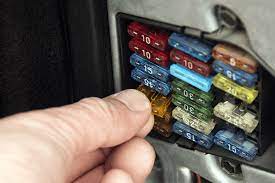
In order to avoid any damage, it disrupts the electrical circuit and turns off the power. This prevents objects from burning up, overheating, or breaking. Additionally, an ignition fuse acts as your car’s superhero, protecting you from electrical accidents. It’s a little component that contributes significantly to the safe operation of the electrical system in your car.
Why Is Your Ignition Fuse Keeps Blowing In A Car?
When your car’s ignition fuse continues blowing, it’s like a warning sign that something is wrong. This indicates that something isn’t quite right with your car’s electrical system, so it’s time to conduct some investigation. Here are a few straightforward justifications for why this could occur:
1. Short Circuits:
Imagine that two electrical lines in your car are touching when they shouldn’t be. It works like an electrical shortcut and results in a burst of power that your fuse cannot withstand. To prevent damage or possibly a fire from happening to your car, the fuse blows.
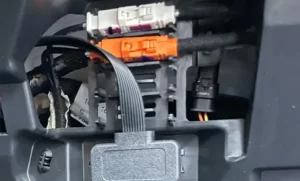
2. Defective Wiring:
The wires in your car may get corroded, frayed, or worn out over time. When that happens, they can block the electricity’s flow, allowing more power than the fuse can manage to pass through. Once more, the fuse bursts to stop any damage.
3. Negative Elements:
There are numerous electrical components in your car, including the ignition switch and starter motor. These components can start using more power than the fuse can supply if any of them malfunction. As a result, a fuse blows as a safety measure.
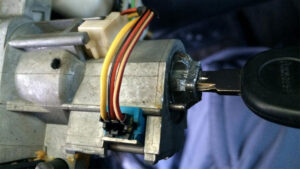
4. Additional Accessories
Cool accessories like amplifiers or extra lights that you’ve installed to your automobile without considering the power they use can overwhelm the electrical system and cause the fuse to blow.
5. Outdated Fuses:
Like anything else, fuses can become less effective at handling electricity as they age. Even under normal circumstances, fuses in your car are more likely to explode if they are old or worn out.
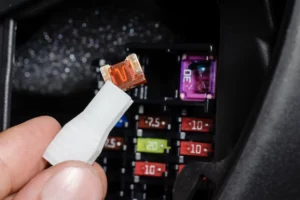
In a nutshell, the electrical system of your car’s ignition is protected by a fuse that blows. It makes the ultimate sacrifice in order to avoid more serious issues like costly repairs or fires. If you keep changing the fuse and it keeps blowing, your car may require some maintenance. Don’t ignore it; get a mechanic to check it out and make the necessary repairs so you can safely resume driving.
Easy Fixes For A Constantly Blowing Ignition Fuse In A Car
It can be really annoying if your car’s ignition fuse keeps blowing. But don’t panic; there are fixes for this issue that you may apply on your own or with a mechanic’s assistance.
1. Conduct A Short Circuit Check:
When wires touch one other when they shouldn’t, short circuits result. Look for exposed or broken wires, particularly in the cabin or under the hood. If you do, carefully separate them and wrap them with electrical tape. Ensure that all wire connections are secure and free from corrosion or rust.
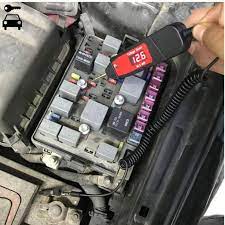
2. Check The Wiring:
Have a qualified mechanic take a check at your vehicle’s wiring if you have any reason to believe it may be compromised. Damaged wires may result in fuse issues, and a professional may replace them if necessary.
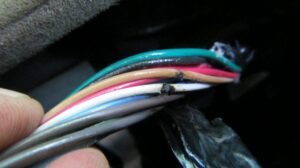
3. Identify Defective Components:
Sometimes, a specific component in your car’s ignition system may be acting up and blowing fuses. To identify the problematic component, speak with a mechanic or automotive electrician. To identify the defective component and replace it, they can run tests.
4. Install Accessories Correctly:
Make sure any aftermarket additions, such as a sound system or lights, are installed properly. Use the appropriate fuses and relays, calculate their power needs, and watch out for overloading your car’s electrical system.

5. Fuse Replacement:
Fuses need to be checked and replaced from time to time since they might wear out over time. Use fuses that meet the amperage requirements indicated in your car’s manual.
6. Consult A Specialist:
It is essential to get professional assistance if you are still having issues with your ignition fuse despite your best efforts. They can locate the issue and rectify it thanks to their sophisticated diagnostic equipment.

Therefore, to drive safely and smoothly, keep your car’s electrical system in good working order. You may avoid the hassle of a blown ignition fuse by doing routine maintenance and taking care of electrical problems as soon as they arise. This will keep your automobile running smoothly.
What Preventive Measures To Take For Avoiding Blowing Of Ignition Fuse?
You may avoid aggravating breakdowns and expensive repairs by making sure your car’s ignition fuse doesn’t keep blowing. Here are a few straightforward precautions to remember:
1. Continual Inspection:
Make it a routine to check the wiring in your car. In particular, search the area surrounding the engine and within the cabin for any exposed or broken cables. Address any flaws you find right away. Early problem-solving can keep minor issues from growing into larger headaches.

2. Keep It Tidy:
Cleaning your automobile might help you avoid electrical issues in addition to keeping it looking good. Rust on your wires and connectors from dirt and grime can increase electrical resistance and cause fuses to burst. So, thoroughly clean both the inside and outside of your car.
3. Carefully Install Any Accessories:
Make sure to install any new electrical accessories you’re adding, such as lighting or a new audio, correctly. Use the appropriate wiring, relays, and fuses for the task. Consult a specialist if you’re unsure to make sure everything is set up properly.
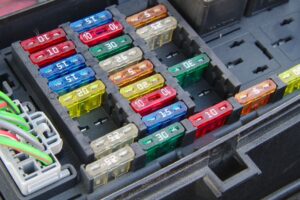
4. Examine The Component’s Health:
Keep an eye on the condition of the starter motor, ignition switch, and distributor, among other important parts of your car. Have them checked by a mechanic if you detect any warning indications, such as sluggish starting or odd noises. Fuse issues can be avoided by replacing or fixing defective parts.
5. Apply The Correct Fuses:
Fuses are available in various sizes and grades. Use just the fuses recommended by the automaker. By using the incorrect fuse, you run the risk of overloading the circuit and frequent fuse blows.
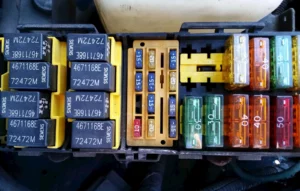
6. Continual Upkeep:
Follow the specified maintenance regimen for your car. This covers standard maintenance procedures such as inspecting the battery, alternator, and other electrical components. Parts that have been properly maintained are less likely to result in electrical issues.
7. Stay Up To Date:
Learn about the electrical system in your automobile and the typical problems that arise with it. Being knowledgeable can empower you to recognize issues and take action before they snowball into huge headaches.

8. Consult A Specialist:
Don’t hesitate to speak with a qualified mechanic or automotive electrician if, despite your best efforts, you continue to experience problems with blown ignition fuses. They are qualified and equipped to identify and resolve challenging electrical issues.
Therefore, by following these straightforward preventive steps, you can keep your car in top condition and spare yourself the aggravation of frequent fuse failures.
Repairing Cost To Fix The Blown Ignition Fuse Issue
The price to fix an ignition fuse that keeps blowing in an automobile varies. Usually, it relies on the underlying problem that led to the fuse blowing. Simple improvements like changing a blown fuse or taking care of minor wiring issues could cost anywhere from $50 to $200. However, it can cost anywhere from $200 and $600 or even more if the issue is more complicated.
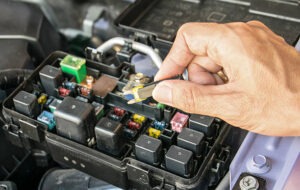
Additionally, it requires identifying and fixing a defective component. Because the cost varies depending on the precise issue and the make and model of the automobile, it is imperative to consult a mechanic for an accurate estimate. You can avoid having to make future, more costly repairs by taking care of the problem right now.
Conclusion:
Any vehicle owner may experience the aggravation and potential danger of a ignition fuse keeps blowing. But if you have understanding of the typical reasons and workable fixes, you can effectively deal with this issue. You can assist guarantee that your car’s ignition fuse remains intact so that you can take pleasure in smooth and problem-free journeys by performing routine maintenance, carefully installing aftermarket equipment, and promptly attending to any electrical concerns. Always remember that it’s advisable to seek a professional when in doubt if you want to maintain your automobile running securely and dependably.
